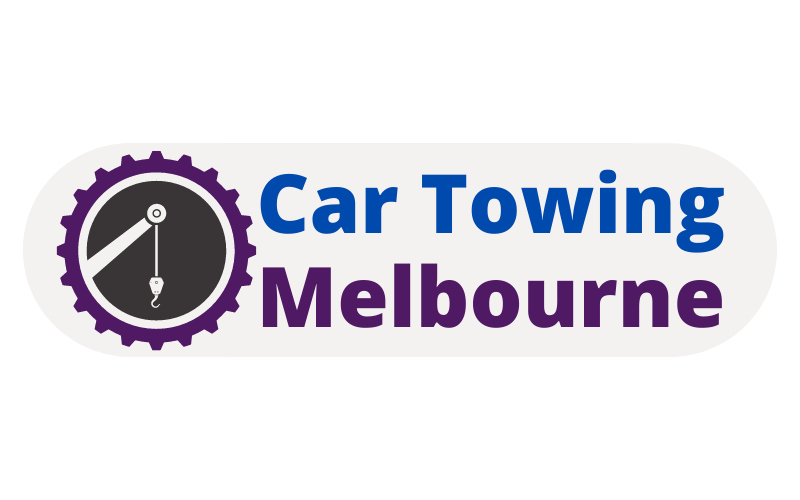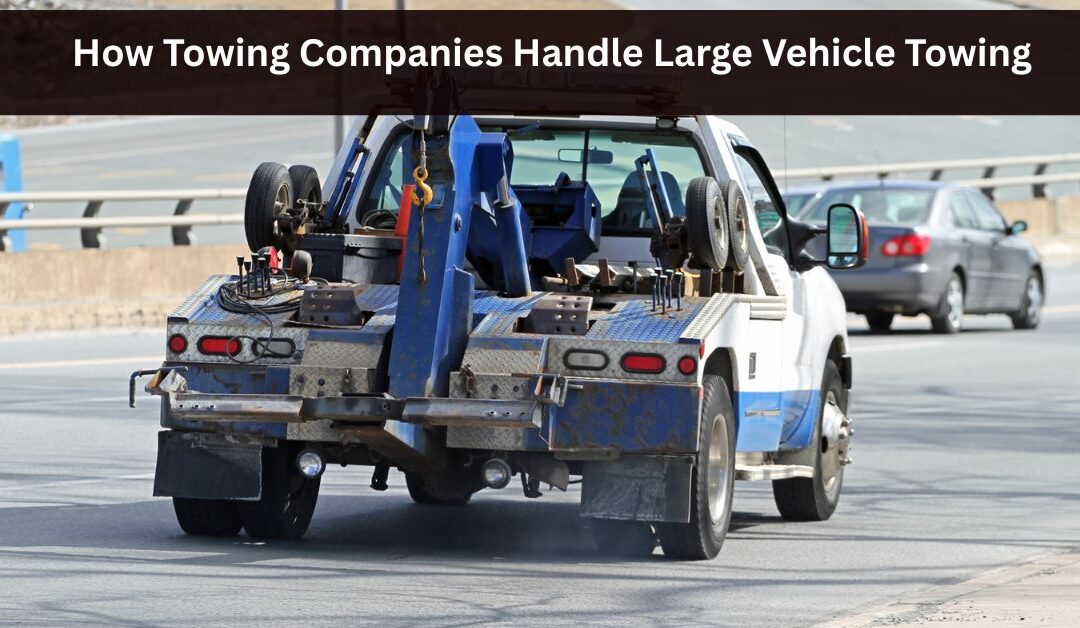When it comes to towing large vehicles, such as trucks, RVs, buses, or construction equipment, towing companies must use specialized equipment and techniques to ensure the safe and efficient transport of these oversized vehicles. Unlike standard passenger cars, large vehicles require more attention to detail, careful planning, and the right tools. This article explores how towing companies handle large vehicle towing, the challenges involved, and the equipment used to ensure a safe and successful tow.
The Challenges of Towing Large Vehicles
Towing large vehicles presents unique challenges that require more than just a typical tow truck. One of the primary challenges is the sheer size and weight of these vehicles. Large vehicles often have higher centers of gravity, heavier weight, and larger dimensions than standard cars, making them harder to secure and transport safely.
Weight and Load Distribution
Large vehicles, especially trucks and RVs, can be significantly heavier than regular cars. This weight requires specialized tow trucks with the ability to handle the load without causing strain or potential damage to either the vehicle being towed or the towing vehicle. Additionally, the weight must be distributed evenly across the tow truck to prevent tipping or instability during transit.
Dimensions and Clearance
Large vehicles often have wider, taller, and longer dimensions than smaller cars. These dimensions present problems when navigating tight spaces, narrow streets, or bridges with weight limits. Towing companies must carefully plan the route for large vehicle tows, ensuring there is enough clearance for both the vehicle being towed and the tow truck itself.
Special Equipment for Large Vehicle Towing
To handle these challenges, towing companies use specialized equipment designed for large vehicle towing. Some of the key tools and vehicles used include:
Types of Tow Trucks for Large Vehicle Towing
When towing large vehicles, a standard tow truck is insufficient. Towing companies typically use heavy-duty tow trucks or specialized vehicles designed to carry oversized loads. Here are the main types of trucks used:
Heavy-Duty Flatbed Tow Trucks
For many large vehicles, a flatbed tow truck is the most suitable choice. These trucks have a large, flat platform that allows the entire vehicle to be lifted off the ground and transported safely. Flatbed tow trucks are particularly useful for large vehicles that cannot be towed by lifting their wheels, such as RVs, buses, and construction vehicles.
The flatbed is equipped with ramps and hydraulic lifts that make loading and unloading easier, even for vehicles with low ground clearance. With a flatbed tow truck, the large vehicle is secured tightly to the platform, minimizing the risk of damage during transport.
Heavy-Duty Wheel-Lift Tow Trucks
Another type of tow truck used for large vehicles is the heavy-duty wheel-lift truck. This type of truck uses a hydraulic lift system to raise the vehicle by its wheels, lifting the front or rear end of the vehicle while leaving the other end on the ground. These trucks are commonly used for towing large trucks and commercial vehicles that are not too heavy for the lift system.
While not as versatile as flatbed trucks for all vehicle types, wheel-lift trucks are ideal for towing large vehicles that still have a working drivetrain, allowing them to be safely lifted and towed with minimal risk of damage.
Lowboy Trailers
For extremely large or heavy vehicles, towing companies often use lowboy trailers, which are designed for heavy cargo. These trailers have a low deck height that allows for easy loading and unloading of oversized vehicles, such as construction equipment or large machinery. Lowboy trailers are capable of carrying massive loads that regular tow trucks cannot handle, making them essential for specialized towing jobs.
Securing Large Vehicles for Transport
Once the appropriate tow truck or trailer has been selected, the next critical step is securing the large vehicle for transport. The safety of the vehicle being towed and the other vehicles on the road depends on how securely the large vehicle is fastened to the towing vehicle.
Use of Straps and Chains
To ensure that the large vehicle is securely held in place during transit, tow truck operators use high-strength straps, chains, and binders. These tools are used to secure the vehicle’s frame, axles, and wheels, preventing any movement while on the road. The operator must carefully attach the straps and chains in such a way that they do not cause damage to the vehicle’s body or critical components.
For larger vehicles, multiple securing points are typically needed to ensure even distribution of force. Tow truck operators also check and recheck the tension of the straps during the loading process to make sure the vehicle is stable and will not shift during the journey.
Lifting and Loading the Vehicle
When towing large vehicles, careful lifting and loading are crucial to avoid damage. Heavy-duty tow trucks are equipped with powerful hydraulic systems that allow operators to lift the vehicle smoothly and securely. Operators use ramps, winches, and lifts to carefully load the vehicle onto the tow truck or trailer. For low-clearance vehicles, operators may use specialized equipment to raise the vehicle gently, ensuring that there is no damage to the undercarriage or other sensitive parts.
Once the vehicle is properly loaded, the operator ensures that the vehicle is centered on the flatbed or trailer and securely fastened before transport begins.
The Route and Legal Considerations
Transporting large vehicles also requires careful planning of the route. Towing companies must account for the size and weight of the vehicle, ensuring that the tow truck can safely navigate roads, bridges, and other obstacles.
Route Planning
The size of the vehicle being towed often requires route adjustments to avoid narrow streets, low bridges, or roads with weight restrictions. Towing companies will plan the most efficient and safe route, avoiding potential hazards and ensuring that the large vehicle can be towed without risk of getting stuck or causing damage to infrastructure. This may include obtaining permits for oversized loads if the vehicle exceeds certain size or weight limits.
Permits and Regulations
Depending on the region, towing large vehicles may require special permits or adherence to specific regulations. For example, if the vehicle being towed exceeds a certain weight or size, the towing company must obtain permits to legally transport the vehicle. This ensures that the towing company is compliant with local laws and that the transport process is safe for both the vehicle and the surrounding public.
In some cases, the towing company may need to coordinate with local authorities to close off lanes of traffic, arrange for escorts, or ensure that the route is clear of obstacles. This level of coordination helps ensure the smooth and safe transport of large vehicles.
Handling Special Situations and Emergencies
Large vehicle towing may not always go according to plan. Towing companies must be prepared to handle unexpected situations, such as accidents, road closures, or equipment failures. In these cases, towing companies must act quickly and efficiently to ensure that the vehicle is still transported safely.
Emergency Response
In emergency situations, such as when a large truck is involved in an accident, towing companies must respond promptly to prevent further damage. Specialized tow trucks may be required to remove the vehicle from a hazardous location, such as a highway or a construction site. The towing company will assess the situation and use the right equipment to handle the emergency in a safe and efficient manner.
Conclusion
Towing large vehicles requires specialized knowledge, equipment, and planning. From using heavy-duty tow trucks like flatbeds and wheel-lifts to securing the vehicle for transport and navigating tricky roadways, towing companies must be prepared to handle all aspects of large vehicle towing. With the right tools and expertise, towing companies can safely transport large vehicles while minimizing the risk of damage or accidents. Whether you need to tow a commercial truck, RV, or construction vehicle, professional towing services ensure that your large vehicle is in safe hands.
Car Towing Melbourne
142 Glenlyon Rd, Brunswick VIC 3056
(03) 7037 7625

